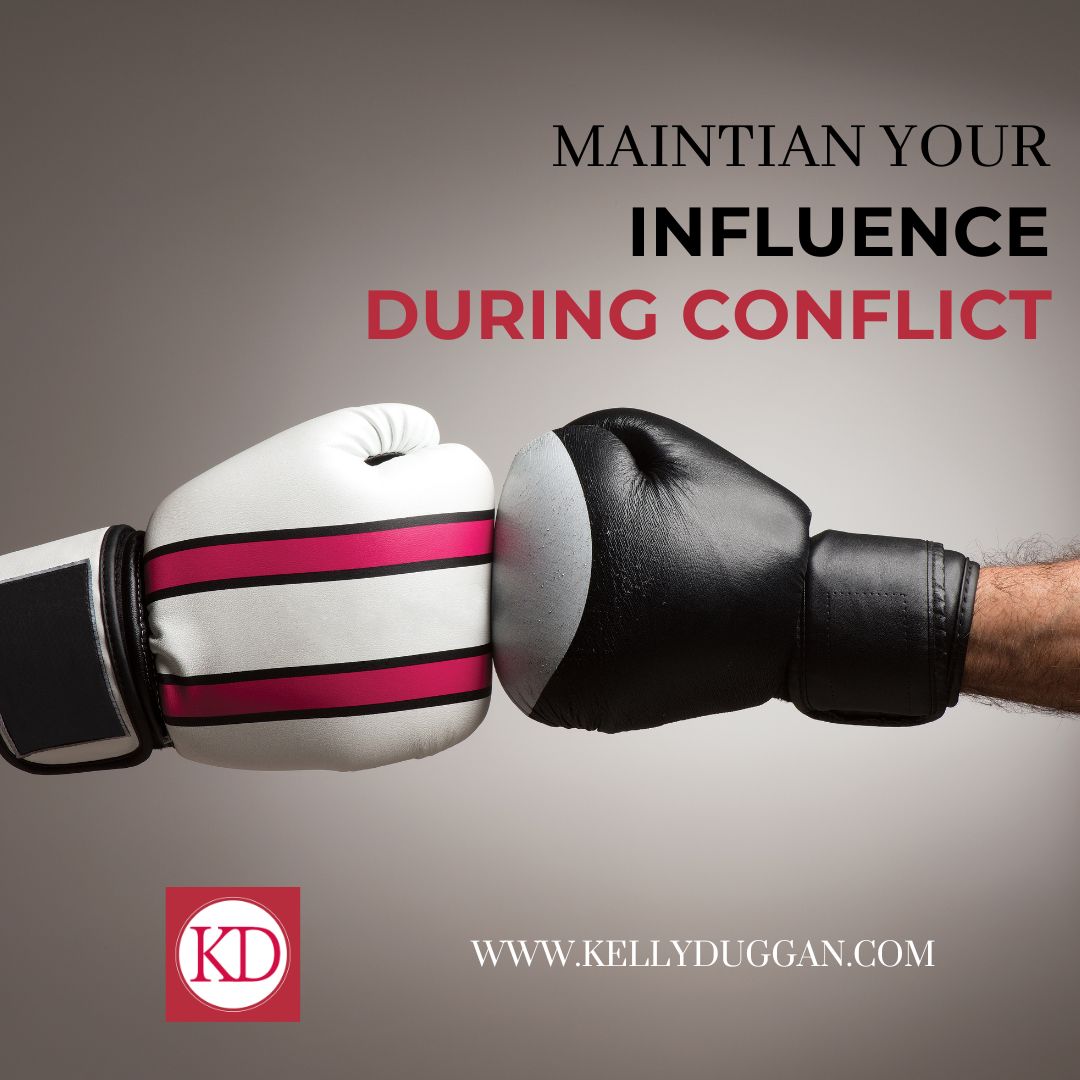Maintain Your Influence During Conflict
Whether you’re a leader with years of experience or are in your first position, you know that workplace conflict is inevitable. We’re all human. So conflicts arise in relation to people issues (e.g., layoffs and firings), the best way to handle a major project, how/when to install new technologies, and stuff that just seems to come out of left field that you didn’t see coming.
Conflict can feel (or actually be!) scary and, at minimum, uncomfortable. You might think that your authority, influence and ability to get things done will be diminished by conflict. But actually, it can be a time when you build on the competence and trust that will maintain your influence over the long term. How do you do that?
The Foundation: Civility
The bedrock of handling conflict well is the concept of civility — the act of showing regard for others by behaving politely toward them and ensuring that their dignity is maintained. Incivility is the opposite of course. It’s negative behaviors that insult others or violate the common norms of behavior in the workplace.
Civility is practicing “good manners” and being mindful of not just yourself but all those around you. At its deepest level civility means being a conscious member of your community and behaving in a manner that shows care for others, even when you have disagreements. For example, you show civility when you speak kindly to someone who has hurt your feelings or you hold the door for someone you currently think is a total jerk.
Every time you practice civility —especially during times of disagreement, strain and conflict — you’re building influence when you show others understanding, respect and empathy. And, even if they’re not consciously aware of it, they’ll be influenced by how you handle these situations.
Conflict: Key Influence Behaviors
Based on many years of experience, I think there are five key, interlocked behaviors you can practice during times of conflict that will maintain and even grow your influence over time.
-
- • Listen Carefully. This is probably the most important thing to do. And, for most people, it’s the hardest behavior; it can take years of practice to get good at it. Learn to not plunge into an argument by immediately talking, but genuinely listen to what someone has to say. Give nonverbal indicators that you’re listening. Identify points of agreement. Feed back what you think you heard. There are entire courses devoted to what’s called “active listening.” If you’d like to get better at this behavior, it’s definitely worth the effort to participate in one.
-
- • Think the Best. Until proven otherwise, assume that everyone involved in a conflict has good intentions. Don’t immediately jump to the conclusion during a disagreement that others are “just being difficult” or that they want to belittle or attack you. Yes, sometimes people can be sneaky and underhanded when they feel hurt or fearful or angry. But most often, others just see things in a different way. And the good news is that valuable ideas and solutions might be found in those different perceptions.
-
- • Have Patience. Conflict and resolution make up a process. The whole thing can be brief (e.g., someone’s hogging the microwave at lunchtime) or take a very long time (e.g., the sale of a failing company to a competitor). You need to recognize the big picture and be patient with yourself and others. People are going to have access to different amounts/types of information, and some are going to move through conflicts more quickly than others.
-
- • Mind Your Body. Use your body as an indicator of what you’re going through during a conflict. It doesn’t lie! If you feel yourself getting wound up, not listening or behaving badly, take two or three deep breaths and settle back down. If your gut instinct tells you something isn’t right, pay attention and try to determine what’s accurate and/or appropriate.
-
- • Speak and Act Kindly. A big part of civility is speaking to and acting kindly with others. Use the tone and volume of your voice to connect with, not disconnect from, others during conflict. Don’t gossip. Complement or praise the wisdom of the “other side” when you feel you sincerely can. Above all, think before you act.
What behaviors have you found helpful or most important during conflicts you’ve experienced? Have you gained or lost influence as the result of a particular conflict? We’d love to hear!
If you’d like help with these key behaviors or anything else you think is affecting your influence with others, let us know. Contact us direct here.

